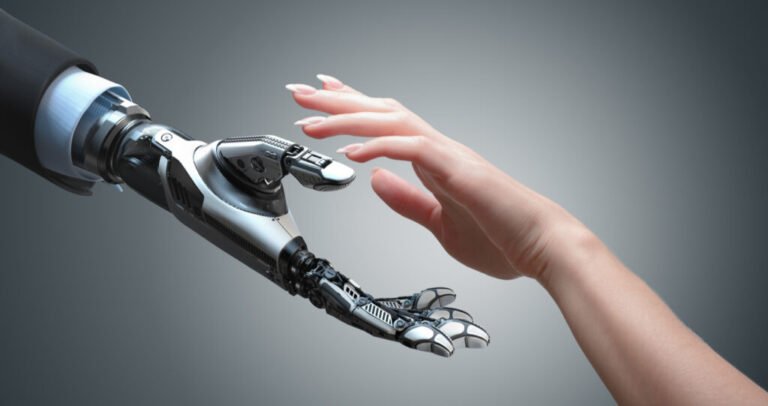Radical Changes in Sales by 2025 (and How to Stay Ahead)
What will sales look like in 2025? Spoiler alert—it won’t be about having the most persuasive salesperson or the largest sales team. Instead, the future of sales is all about fusing advanced technology with human skills for a seamless and highly effective sales process.
For business leaders and sales managers, this shift represents both a challenge and an opportunity. Those who adapt quickly will thrive, while others risk falling behind their competition. This blog will explore the key transformations expected in sales by 2025 and how you can prepare your team for these changes.

Why Traditional Sales Models Are Losing Their Momentum
The days of cold calls, generic email blasts, and rigid sales scripts are numbered. Traditional sales models increasingly fail to meet the expectations of modern buyers, who crave personalization, immediate responses, and data-backed recommendations.
Buyers now have access to an abundance of online information. They research, compare, and decide what they want—oftentimes before they even speak to a salesperson. This self-reliant buying behavior is making outdated sales methods obsolete. Instead of relying on persuasion, the most successful sales strategies will deliver value from the very first interaction.
Sales professionals are no longer gatekeepers of information—they are collaborators in solving problems, and they rely on technology to amplify their capabilities.
AI in Sales is No Longer a Bonus—It’s a Necessity
Artificial intelligence (AI) is set to become a mandatory tool in sales by 2025. Modern buyers expect fast, personalized service, and AI is the secret weapon that makes this possible.
AI tools can conduct tasks like:
- Analyzing customer data: AI evaluates customer preferences, previous purchases, and behavior to deliver personalized recommendations.
- Sales forecasting: Machine learning algorithms predict sales trends and demand, helping sales teams make informed decisions.
- Automated follow-ups: AI can draft and send emails, schedule meetings, and nurture leads efficiently.
But it’s not just about automation. AI also provides insights that allow sales teams to create meaningful interactions. For example, instead of blindly pitching, a salesperson equipped with AI tools can jump in with tailored solutions based on a detailed analysis of the lead’s needs.
Teams that fail to integrate AI into their workflows risk losing prospective customers to competitors who have embraced the power of data and automation.
More Customer Time, Less Admin Time
Here’s a startling statistic—sales representatives spend up to 60% of their time on administrative tasks, according to industry reports. That’s 60% of the day not spent selling or building relationships!
By 2025, AI tools are expected to dramatically shift this balance. Tasks like updating CRMs, writing follow-up emails, or creating reports will be relegated to automation. This will free up sales professionals to do what they’re best at—building trust with customers.
Imagine this:
- Instead of logging data into a CRM, an intelligent system captures and organizes the information.
- Instead of manually drafting proposals, AI generates polished documents in seconds.
- Instead of keeping track of key follow-ups, automated reminders ensure no lead is forgotten.
The result? Sales teams will spend more time in meetings (whether virtual or in-person), nurturing relationships, and closing deals. Businesses that leverage AI to streamline admin-heavy tasks will see an exponential boost in productivity and customer satisfaction.
Customer Engagement Will Be the Core of Sales
By 2025, sales will become less about transactions and more about relationships. Human connection will take center stage in an era driven by technology.
With AI handling repetitive tasks, salespeople will be able to focus on truly understanding their customers’ pain points and delivering unmatched service. Authenticity and emotional intelligence will be key traits for sales professionals of the future.
Some key shifts in customer engagement include:
- Deeper personalization: Understanding customer motivations and delivering bespoke solutions will set successful sales teams apart.
- Faster response times: Automation tools enable immediate replies to buyer queries, minimizing friction and wait times.
- Ongoing relationships: Salespeople will transition into long-term advisors, helping clients resolve not just immediate needs but also anticipate future challenges.
The brands that succeed will be the ones that create loyal customers who trust and align with their values, not just their products.
The Salesperson of 2025: A Hybrid Expert
The role of the salesperson is undergoing a revolution. By 2025, highly skilled salespeople will resemble a blend of data scientists, digital marketers, and relationship builders.
Here’s what a successful salesperson in 2025 will look like:
- AI Expertise
Salespeople will need to master AI tools to analyze data, forecast buyer needs, and optimize their workflows. Simply “knowing how to sell” won’t cut it anymore.
- Data-Driven Decision Making
Gone are the days of guesswork and gut feelings being the sole drivers behind sales decisions. Every move will be backed by analytics and insights from advanced algorithms.
- High Emotional Intelligence (EI)
Being tech-savvy is crucial, but strong interpersonal skills will always matter. Reading between the lines of what a customer needs—and delivering it with empathy—will remain vital.
- Advisor, Not Seller
Salespeople will act more as consultants and trusted advisors than transactional sellers. They will educate clients, solve complex problems, and make strategic recommendations.
Preparing your team to adopt these traits means investing in continuous training, particularly in areas like AI adoption, emotional intelligence, and data literacy.
Stay Ahead of the Curve
Sales in 2025 won’t look anything like it does today. The businesses that succeed will be those that recognize and act on three key principles:
- Integrating AI technology to streamline processes and improve the customer experience.
- Empowering sales teams to focus on relationship building and emotional intelligence.
- Training your workforce to adapt to advancing technologies and changing customer expectations.
If you’re serious about preparing your team for the future, the time to act is now. Start experimenting with AI-powered sales tools, rethink your engagement strategies, and upskill your team on both the technical and emotional sides of sales.